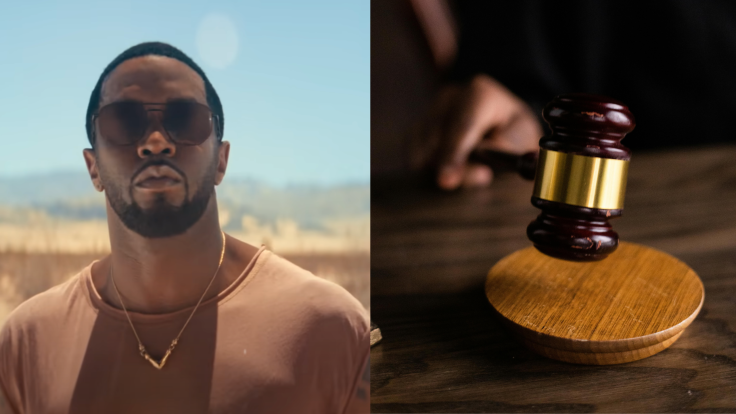P Diddy 'Partial Verdict' Out: What Is a RICO Charge and Why Does It Matter?
Understanding the Significance of RICO Charges and Their Impact on Sean 'Diddy' Combs' Legal Battle

A pivotal moment in the federal trial of Sean 'Diddy' Combs has left many questioning the strength of the case and the seriousness of the allegations. The jury has reached a partial verdict on four charges but remains deadlocked on the sprawling racketeering count, which could mean a lengthy wait before a final decision.
This development raises important questions about what RICO charges involve and how they could impact the hip-hop mogul's future. But what exactly is a RICO Charge? Many are asking.
What Is Happening in the Diddy Trial?
Just recently, the jury informed Judge Arun Subramanian that they had reached a partial verdict on four of the five charges against Combs. The four charges they decided on include two counts of sex trafficking by force, fraud, or coercion, and transportation for purposes of prostitution.
Despite this, they are still deliberating on the most serious charge: racketeering.
The judge received a note at around 4 pm indicating the jury was unable to agree on the racketeering count. Jurors had also asked for clarification about what constitutes drug distribution in relation to the case, reflecting the complexity of the allegations. The jury's note mentioned that some jurors held 'unpersuadable opinions,' and the deliberations are set to continue until a consensus is reached.
Both prosecution and defence agreed that the jury needed more time before announcing a final verdict on the racketeering charge. The case, which has lasted over a day, is crucial because a conviction on racketeering could lead to a life sentence, given the serious nature of the crimes involved.
Understanding RICO and Its Role in the Case
RICO stands for the Racketeer Influenced and Corrupt Organizations Act. It's a federal law designed to tackle organised crime by targeting patterns of criminal activity connected to an enterprise. The law requires prosecutors to prove a 'pattern' of at least two criminal acts—called predicate offences—within a decade.
@thatssority P Diddy Trial: RICO Explained ⚖️ #pdiddy #diddy #diddylawsuit
♬ original sound - Rita & Tyler
These predicate offences can include serious crimes like murder, kidnapping, extortion, bribery, fraud, drug trafficking, arson, and even conspiracy. If a person or organisation is found guilty of a RICO violation, the penalties are severe. They can face up to 20 years in prison per count, hefty fines, and the forfeiture of assets gained through illegal activities.
In the context of Combs' case, prosecutors allege his involvement in multiple criminal acts, from facilitating sex trafficking to drug distribution, all under the umbrella of a criminal enterprise. The ultimate aim is to dismantle what they describe as a network engaged in ongoing illegal operations.
Why Is the Racketeering Charge So Significant?
The RICO charge is often the most serious aspect of such trials because it implies a persistent pattern of criminal conduct rather than isolated incidents. Prosecutors need to prove that Combs knowingly and willingly participated in this ongoing illegal enterprise.
If convicted on the racketeering count, Combs could face life imprisonment, making it a potentially career-ending and life-altering outcome. The charge also allows for civil actions, which could lead to the seizure of assets and further penalties beyond prison.
@kadishalynnnn #greenscreen @kentlawfirm breaks down how Diddy could face life over the RICO charge! #fyp #pdiddy #diddy #TikTokFilmTVCompeition
♬ original sound - Kadisha
What's Next in the Trial?
With the jury unable to reach a verdict on the racketeering charge, the case remains unresolved. They have been asked to continue deliberations, with a new session scheduled post-haste. The outcome hinges on whether the jury can agree that Combs was part of a criminal organisation engaged in ongoing illegal acts.
The partial verdict in Diddy's trial demonstrates both the weight of the allegations and the difficulty juries face in establishing a pattern of racketeering. While the case continues, the implications of a RICO conviction could be far-reaching, not just for Combs but for how such charges are applied in future cases.
© Copyright IBTimes 2025. All rights reserved.





















